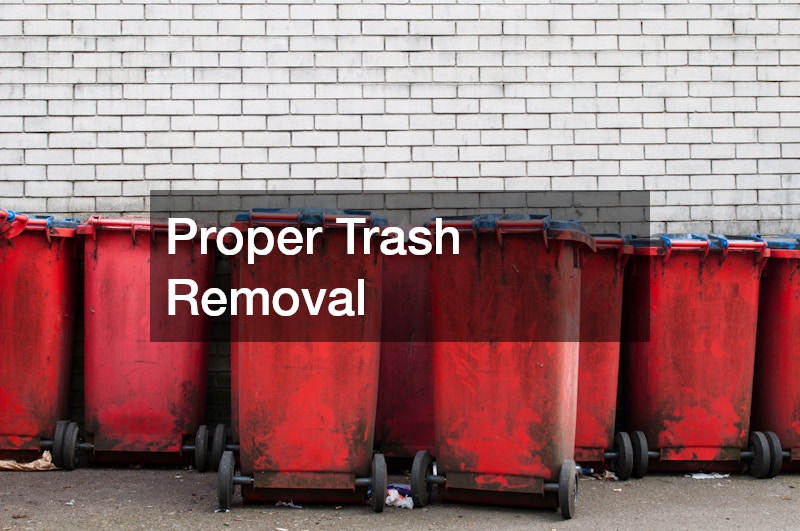Tips For Sustainability in Restaurants


Introduction
In recent years, the food industry has experienced a seismic shift toward sustainability, responding to the growing demand from consumers for environmentally responsible practices. Restaurants, as central players in this domain, are exploring ways to incorporate sustainable practices into their daily operations. From energy-efficient utilities to innovative waste management solutions, adopting sustainable practices in restaurants not only supports the environment but can also enhance brand reputation and result in cost savings. This article delves into various aspects of sustainability that restaurants can adopt, providing a roadmap for sustainable utility options, efficient energy use, water conservation, and more. As diners become more eco-conscious, integrating sustainability in restaurants has moved from being a mere trend to a crucial component of business strategy. Welcome to a comprehensive guide exploring how various elements contribute to sustainability in restaurants, and how business owners can take action to align with these principles.
Sustainable Utility Options

One of the foundational steps for restaurants aiming to become more sustainable is optimizing their utility systems. Engaging AC installation companies that specialize in energy-efficient systems can drastically reduce heating and cooling expenses, thereby minimizing the restaurant’s carbon footprint. Such systems are not just cost-effective in the long run; they appeal to environmentally conscious consumers. By consulting AC installation companies, restaurant owners can ensure they are investing in the most up-to-date, eco-friendly technology available.
A commitment to sustainability in restaurants must extend beyond just initial installations. Restaurants can achieve significant sustainability goals by employing routine maintenance and upgrades that keep systems at peak efficiency. Leveraging innovative solutions ensures that energy consumption is kept in check while maintaining a comfortable environment for diners. The use of advanced technologies and smart systems can further enhance sustainability in restaurants, laying a comprehensive path toward a greener future.
Another critical component in sustainable utility options is training staff on the usage of these systems to ensure optimized functionality. This holistic approach ensures that the investment in sustainable utility systems is maximized. It’s a part of the culture shift necessary for lasting change in the restaurant industry, where everyone plays a role in sustainability. This multifaceted effort is essential to championing sustainability in restaurants, encouraging a ripple effect throughout the food service community.
Energy Usage
Energy usage is a pivotal focus for sustainable development within the restaurant sector. One essential aspect is air duct cleaning and repair, which optimizes HVAC systems and reduces energy waste. Regular maintenance of these systems ensures efficiency and boosts overall energy efficiency, which is a key component of sustainability in restaurants. Clean air ducts can lead to a healthier dining atmosphere and decrease operational costs in the long term.
Restaurants can further reduce their energy footprint through thoughtful energy management practices, such as upgrading to energy-efficient lighting and kitchen appliances. Implementing an energy management plan ensures that all aspects of energy usage are monitored and optimized to achieve sustainability in restaurants. This conscious effort not only reflects positively on the restaurant’s environmental impact but can significantly reduce utility costs, improving the bottom line.
To reach the pinnacle of energy sustainability in restaurants, owners need to stay informed about emerging technologies that could transform energy utilization. Initiatives such as using renewable energy sources or engaging in energy offset programs can significantly contribute to reducing a restaurant’s carbon footprint. By being proactive, restaurants can lead the way in energy conservation and efficiency, setting a standard for the industry.
Water Efficiency
Water efficiency is another critical area where sustainable practices can be implemented in the restaurant industry. Utilizing plumbing services that prioritize water-saving technologies can drastically cut water usage. Installing low-flow toilets, faucets, and other water-efficiency fixtures not only reduces water consumption but also aligns with broader sustainability goals. Reliable plumbing services can provide assessments to help understand water usage patterns and suggest corrective measures as necessary.
Implementing water management strategies such as regulated cleaning schedules and staff training can ensure that water is used judiciously in day-to-day operations. Educating staff on the importance of water conservation and how to execute these practices effectively is crucial in achieving concrete reductions in water usage. Sustainability in restaurants strongly relies on a comprehensive approach that involves awareness and action in equal measure.
Furthermore, incorporating rainwater harvesting systems or graywater recycling can further bolster water sustainability in restaurants. These systems provide additional water supplies for non-potable uses, such as landscaping or restroom facilities, reducing the dependence on municipal sources. By enhancing water efficiency, restaurants not only contribute to environmental preservation but also demonstrate responsible resource management to their consumers and community.
Utensils, Dinnerware, Menus

Transitioning to sustainable utensils, dinnerware, and menus is a tangible way for restaurants to demonstrate their commitment to eco-friendly practices. As diners become more aware of their environmental responsibilities, the use of biodegradable or reusable materials in restaurants can significantly contribute to sustainability efforts. A pizza restaurant, for instance, can make a positive impact by adopting packaging and utensil choices that align with sustainable standards.
Digitizing menus or using recycled materials for printed ones can reduce the amount of paper waste generated by restaurant operations. Incorporating digital solutions not only supports sustainability in restaurants but also expedites menu updates and reduces costs associated with reprinting. The shift can enhance customer experiences by providing a modern, convenient approach to dining.
Promoting eco-conscious dining practices involves educating customers about sustainability efforts, which can be powerful in building a loyal customer base. Offering incentives for customers who bring their containers or utensils reflects a restaurant’s dedication to sustainability. Such initiatives are vital in driving awareness about sustainability in restaurants and empowering patrons to partake in these efforts actively.
Grease and Food Waste
Managing grease and food waste is a significant challenge for restaurants striving to become more sustainable. By partnering with grease recycling companies, restaurants can ensure that waste is processed in an environmentally responsible manner. This process not only mitigates environmental harm but also converts waste into valuable resources, such as biofuels, contributing to a circular economy.
Reduction of food waste is an equally critical aspect of achieving sustainability in restaurants. Solutions may include portion control, menu design, and partnerships with local food banks to donate surplus food. Leveraging technology to forecast demand and inventory needs can significantly aid waste reduction efforts, benefiting both the environment and cost management.
Implementing a comprehensive waste management strategy that tracks, assesses, and optimizes waste disposal processes can further enhance sustainability in restaurants. Training staff on properly disposing of waste and recycling can amplify these efforts. Restaurants can capture significant operational savings while bolstering their commitment to sustainability by taking these measures.
Food Order Pallets
Pallets are widely used in the transportation of food and other supplies to restaurants, and their efficient recycling is paramount in sustainable practices. Utilizing pallet recycling services can significantly reduce waste and conserve resources, thereby enhancing sustainability in restaurants. Partnering with companies that specialize in these services ensures that used pallets are recycled appropriately, supporting the broader sustainability goals of the restaurant industry.
In tandem with recycling efforts, adopting reusable or recyclable pallets can further optimize resource use in restaurant supply chains. The transition to sustainable materials addresses the environmental impact of traditional pallets and supports eco-friendly operations. This practice can provide cost savings over time and showcase a restaurant’s leadership in sustainability initiatives.
Educating supply chain partners about the importance of pallet recycling and sustainability can foster a collaborative effort to drive industry change. By initiating conversations and partnerships focused on eco-friendly practices, restaurants can influence the entire supply chain to adopt greener methods. This collective approach is central to elevating sustainability in restaurants and contributes to larger environmental preservation efforts.
Proper Trash Removal

Efficient waste management is an integral part of sustainability in restaurants. Partnering with a reliable waste removal service enables restaurants to manage and dispose of waste responsibly and sustainably. These services often offer recycling and composting options, which can significantly reduce the amount of waste sent to landfills.
To improve waste management, restaurants can implement procedures to segregate waste at the source, streamlining the recycling process. Training staff to adhere to these protocols is vital for maintaining efficiency and effectiveness in waste segregation. Such initiatives exemplify a restaurant’s dedication to sustainability and environmental stewardship.
A holistic approach to waste management involves periodic reviews of waste management practices to identify areas for improvement. By evaluating the efficiency and effectiveness of current systems, restaurants can continuously enhance their sustainability strategies. This ongoing commitment is crucial for maintaining progress and achieving long-term sustainability in restaurants.
Building Your Sustainable Brand
Establishing a sustainable brand identity involves more than just implementing eco-friendly practices; it requires communicating these efforts effectively to the public. Working with a banner printing business that offers sustainable options can demonstrate commitment to eco-friendly practices in all aspects, including marketing. Using recycled materials and environmentally friendly inks for signage can enhance a restaurant’s green image.
A strong sustainable brand can be leveraged to engage with customers and the broader community through impactful storytelling and marketing campaigns. Highlighting sustainable initiatives through various platforms helps attract eco-conscious consumers and strengthens the brand’s market position. Transparency in operations and achievements in sustainability in restaurants is crucial for maintaining consumer trust and loyalty.
Cultivating partnerships with local green organizations and participating in community events can further bolster a restaurant’s sustainable brand. These collaborations can amplify a restaurant’s sustainability impact and showcase leadership in the industry. Building such a network is essential for reinforcing sustainability in restaurants, inspiring others, and contributing to a more sustainable future.
Eco-Friendly Refrigerating
Special refrigeration services play a crucial role in enhancing sustainability in restaurants by providing energy-efficient refrigeration solutions. Upgrading to energy-efficient refrigerators not only lowers energy consumption but also reduces operational costs. These systems are designed to be environmentally friendly and can offer significant efficiency gains, aligning with sustainability goals.
Routine maintenance of refrigeration systems ensures that they operate at peak efficiency, further conserving energy. Special refrigeration services can assist in assessing current systems and recommending upgrades or repairs that could improve performance. Implementing these practices demonstrates a proactive approach to adopting sustainability in restaurants and signals a strong commitment to environmental responsibility.
Investing in innovative cooling technologies can also provide substantial energy savings and carbon footprint reductions over time. By employing state-of-the-art technologies and energy-efficient models, restaurants can significantly contribute to sustainability efforts. This focus on eco-friendly practices not only benefits the planet but also enhances the restaurant’s reputation by showcasing leadership in sustainable dining.
Know Where Your Utilities Are

Sustainability in restaurants is significantly enhanced by understanding and managing underground utility lines effectively. Mapping these utilities is essential for preventing potential disruptions and ensuring safe and efficient operations. Restaurant operators can use specialized services for locating and maintaining these underground utilities to uphold safety standards and sustainability values.
Employing advanced mapping and detection technologies for underground utility lines can prevent significant environmental and operational issues. These technologies help conduct routine checks and inspections, ensuring that any disruptions are swiftly identified and addressed. Ensuring the proper functioning of these utilities supports the broader sustainability goals of a restaurant.
By integrating robust utility line management into their operations, restaurants can avoid resource wastage and enhance overall efficiency. Coordinating with professionals in this field can lead to more sustainable practices and infrastructure management. Reliable handling of underground utility lines reinforces sustainability practices and aligns with the growing demand for ecologically responsible restaurant operations.
Conclusion
Sustainability in restaurants encompasses a wide spectrum of practices, from efficient utility management and energy conservation to waste reduction and effective branding. Restaurants play a critical role in environmental stewardship, and by adopting sustainable practices, they can significantly influence industry standards. This comprehensive guide has explored various avenues for integrating sustainability into restaurant operations, providing practical insights and actionable strategies.
Consumer awareness and demand for sustainable dining experiences are on the rise, placing pressure on restaurants to evolve and innovate in their pursuit of sustainability. Whether it’s through reducing food waste, optimizing energy use, or managing resources effectively, each step towards sustainability contributes to a broader positive environmental impact. By understanding the intricate components involved in sustainability in restaurants, owners and operators can forge a path toward more responsible operations.
Emphasizing sustainability should be an ongoing effort, continuously revisiting and improving upon established practices. As the industry evolves, so too will the strategies and technologies supporting sustainability initiatives. By remaining engaged and committed to eco-friendly practices, restaurants can ensure their business remains both viable and influential in promoting a more sustainable future. This ongoing journey is not only beneficial for the planet but also provides a pathway to increased operational efficiency and long-term success.